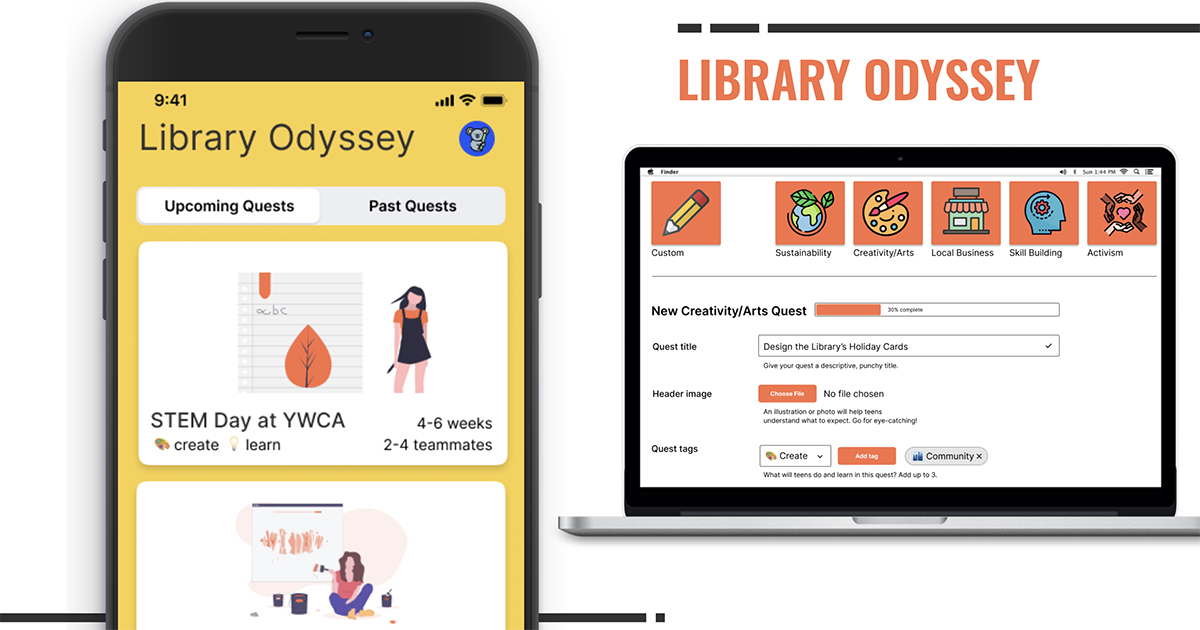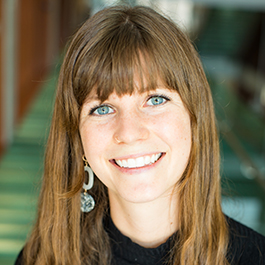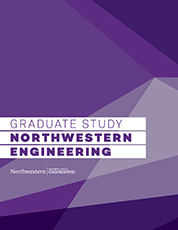Helping Libraries Connect with Teenagers
For her Engineering Design Innovation (EDI) thesis, Kelly McComas (EDI '20) explored how libraries can become better outlets for people who do not take advantage of their vast amount of resources.

A library offers far more than just books to its visitors. As a young girl, Kelly McComas (EDI '20) used to visit her local public library every weekend to bring home as many books as she could, but last year, a podcast she heard helped her realize the true value a library brings to its community. Fascinated by this concept, McComas decided to explore it more deeply as her thesis project for Northwestern's Engineering Design Innovation (EDI) program.
 McComas focused on how libraries can better engage with teen audiences. The result was Library Odyssey, a team-based program that encourages young community members to connect with library resources, librarians, and other users.
McComas focused on how libraries can better engage with teen audiences. The result was Library Odyssey, a team-based program that encourages young community members to connect with library resources, librarians, and other users.
"Libraries offer dozens of services and programs to meet the needs of their users, however, they are chronically under-resourced and can struggle to adapt to the rapidly changing needs and interests of their teen patrons," McComas said. "I wanted to learn more about libraries as social infrastructure and use my thesis to help libraries expand their reach, especially for teen users."
The project’s timing was challenging for McComas, who was unable to visit any libraries in person due to the COVID-19 pandemic. Forced to adapt, she put more attention on her interviews, which consisted of talking with librarians, library volunteers, library patrons, and teenagers, including some who frequented the library and some who did not.
"I wanted to understand what worked for libraries and what wasn't working when it came to developing engaging programming for teens," she said. "I also wanted to learn what teens were interested in doing with their library's resources. And for both of these questions, I wanted to get to the underlying 'why' that drove the behaviors and feelings I was hearing about."
Once she collected her initial findings, McComas brainstormed different concepts of how to make teens more engaged with their local library. She frequently shared her ideas with her interviewees in order to get feedback. Some of the responses might have been hard to hear for some, but not McComas.
"The biggest thing I learned from EDI that helped my thesis was that failure and ambiguity are parts of the design process," she said. "One teen told me quite candidly that an idea I showed her was 'like something your teacher does that they think is cool, but it's actually lame.'
"I felt comfortable trying dozens of different ideas and getting feedback that they wouldn't work or didn't make sense. From my EDI classes, I'd learned that this was all part of the process of iteration."
What McComas ended up with is an online venue for teenagers to more easily understand the resources available from their library and better connect with library staff and volunteers, something that remains critical during the pandemic. The inability to step foot in libraries herself was an unexpected challenge, and it forced McComas to not only rethink her approach to her project, but also the solution she developed. That fluidity ultimately made for a better learning experience, she said, and also contributed to her becoming a stronger, more empathetic designer.
"This project helped me build confidence in planning and executing research and design with myself as both the leader and the person responsible for fine-tuning the details," she said. "In my professional life after EDI, it will be important for me to trust my abilities and knowledge of the process in order to contribute meaningfully to my team — the thesis project definitely helped me get there."

